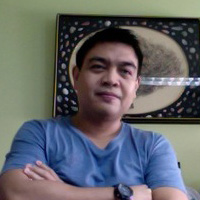SUMMARY
This is AI generated summarization, which may have errors. For context, always refer to the full article.

We concluded the 2013 elections half a year ago, but it seems the political fever that is felt during the campaign season remains. This, to me, is not a good development. Politics is known popularly as “partisanship” and therefore divisive. We have yet to develop a more technical practice of politics, which is more a discourse of policy and programs.
Even that technical practice of politics is partisan, when formulating policies and programs is bound to represent, if not favor, a particular interest. At the very least, however, the public is able to join the discourse. In today’s world, information is readily available, and political leaders can no longer dismiss the people as the same mindless crowd. Some may still be influenced by popularity, but they are definitely more informed and engaged than before.
This is the new backdrop of Philippine politics. Technology has allowed people to learn more about what’s up with popular figures almost instantly. Popular figures could still show their good side, however artificial, but could no longer be as secure as before that they will not be discovered eventually.
Political figures (and, I should say, political entrepreneurs) have of course taken note of this. I’m sure many of you have received text blasts every time there’s an issue or some politician has done something “worthy,” however paltry. On social media, for sure, many have encountered trolls – you say or write something and here comes a netizen berating you and questioning everything about you. They attack well-meaning journalists and respected columnists instead of offer alternative information or arguments to help their principal better.
We were not short on political and economic problems this year – earthquake, world’s strongest storm, occupation of a village by a supposedly “secessionist movement,” the continuing increase in electricity prices, suggesting collusion among players in the industry, indiscretions and abuses of public officials, the now infamous PDAF, an ingenious concoction that is DAP, international security, and economic problems.
All that the we faced in the just-concluded year should serve a purpose – at the very least as reference points as we make our bucket list as a people for 2014. By all means, let us – through means made available to us by technology – put the pressure on our “leaders” to make their bucket list based on these.
Foremost in the bucket list is pursuing institutional reforms. Instead of knee-jerk reactions to important issues like the PDAF scam, we should take time to assess what really explains what happened. The easiest reason to give is that we have greedy political leaders. The thing is, we will always have greedy people around – even we could be greedy at times without us admitting it.
But one cannot be greedy if there’s no subject of greed. Abolishing the PDAF only collates what used to be distributed and moves it from one place to another. But it will still be a subject of greed, this time more potent and more political. Unless the accountability mechanism is strengthened, the same abuse could still happen and the public would still be deprived of the services it has long deserved.
Politics, in fact, explains practically 90%, if not more, of the problems we face as a people, but we have yet to learn that what we need are real reforms that will change the rules of the game and in the process really and effectively expand the country’s political space and institutionalize accountability.
Let’s start with making political parties public institutions, subject to the same rules as any agency of government, subject to the same auditing rules and prevented from raising funds from just any source. This will allow more independent, stronger, and competent political parties that can identify the right people to field for public office and engage the public with key issues and alternative policies and programs for the public to consider.
The question then is, why hasn’t any political party reform bill been passed despite the many efforts before to have such a legislation? Consider too the Freedom of Information bill that has remained only in the agenda but has not moved significantly.
2016 – the next presidential election – remains fluid. Disabuse yourself of the thought that it’s already a foregone conclusion that it’ll be another round featuring the same predicted personalities. The list of problems we just had last year suggests pretty much a wide leeway for other would-be candidates for the top post to emerge.
Sadly, it’ll still be a run of personalities and not of political parties, of slogans and not of platforms. How much of platforms have we seen done so far in the first place? Platforms, at least in functioning democracies, are made up of policies and programs that are long-term, some say institutional, those designed and debated by political groups and result in substantial change in the status quo.
Don’t despair, though. We still have 2014 and at least half of 2015 to do real work and not just politicking. Being reminded of these issues should provide portent of things to come, of alternatives to what is current, of possibilities and therefore positive uncertainty – more than just hopelessness and resignation that nothing more could be done.
Uncertainty is better as it suggests we can still do something and make things certain. Doing something means remaining vigilant and pushing for the right institutional reforms we need. – Rappler.com
Edmund S. Tayao is a professor at the University of Santo Tomas Department of Political Science, and is executive director of the Local Government Development Foundation.
Add a comment
How does this make you feel?
There are no comments yet. Add your comment to start the conversation.